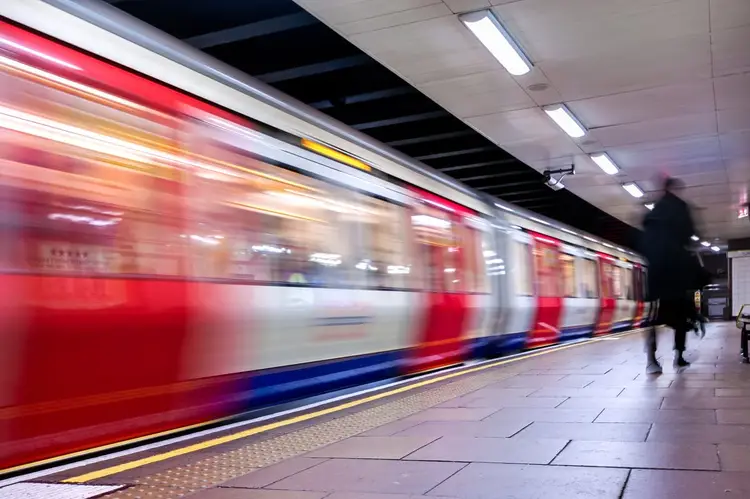When are the November Tube strikes? Two days of action to still take place

Join Simon Calder's Free Travel Email For Tips!
Subscribe To Simon Calder’s Travel Emails
Subscribe To Simon Calder’s Travel Updates
I would like to receive emails regarding promotions, events, and news from The Independent. Please take a look at our privacy policy.

The planned strikes on the London Underground by the train drivers’ union Aslef will continue as scheduled. However, the RMT union announced on Friday afternoon that they will be halting their planned strike actions.
After a stretch of uninterrupted travel on the London Underground, two transport unions revealed plans for multiple walkouts in November.
After discussions with London Underground, the RMT declared that it would cancel the strikes that were scheduled to begin on Friday evening.
For people traveling around London, especially those who regularly use the Tube system run by Transport for London (TfL), it's important to plan your trips in advance. The ongoing strikes are expected to disrupt many parts of the city's transport network.
Last month, both Aslef and the National Union of Rail, Maritime and Transport Workers (RMT) declared strikes due to disagreements over pay and what they considered insufficient salary offers during discussions.
This year, there were several announcements about planned strikes on the underground, but they were ultimately called off. The most recent strike that impacted the entire Tube system occurred in March 2023, focusing on issues related to pensions and working conditions. This led to significant disruptions in London's transportation, causing heavy traffic throughout the city and resulting in packed buses, trams, the Overground, DLR, and the Elizabeth line.
TfL expressed disappointment over the unions' decision to take action. However, since the RMT has chosen to cancel their strikes, they are optimistic that Aslef will likewise cancel their planned work stoppage.
Here’s what we know so far about the strikes and their impact on passengers using TfL services.
What Causes Strikes?
Both train unions reported that their members were on strike because of disagreements over wages, along with concerns about long working hours and additional employee benefits like paid meal breaks.
The RMT stated that they decided to go on strike after turning down a pay agreement they considered to be "entirely insufficient." They feel that this deal excludes a significant number of workers from the negotiation process between employees and employers.
Following their persistent calls for the London Underground to propose a new agreement for collective negotiations, RMT general secretary Mick Lynch stated that they felt compelled to resort to strike action, although they are still willing to engage in further talks.
On Friday afternoon, the RMT made an announcement stating: “After extensive discussions with London Underground management and a notably better proposal, we have decided to call off the strikes that were set to begin this evening.”
The London Underground has wisely decided to drop its planned changes to pay structures. This decision ensures that all our members will receive equal benefits from any pay increase.
Next week, more talks will be held about the pay proposal. However, we have made some strides thanks to the determination and strong support of our 10,000 members working on the London Underground.
Claire Mann, the chief operating officer of Transport for London, expressed satisfaction that the RMT's strikes have been canceled and mentioned that discussions with the union will carry on.
Regarding Aslef, its members overwhelmingly supported strike action, with more than 98 percent voting in favor. They are currently looking for a new pay deal with London Underground.
The union stated that the earlier proposal of a 3.8 percent salary increase alongside a fluctuating bonus would result in Tube drivers earning less than other TfL drivers, despite putting in more hours.
Finn Brennan, the district organizer for Aslef, stated that they felt compelled to take action since the management of London Underground has seemingly refused to engage in meaningful discussions with them.
On Wednesday, Mr. Brennan told the London Standard that Transport for London had not made any progress regarding their requests to enhance the working conditions for Tube drivers.
"The Aslef walkouts are ongoing."
When Are The Upcoming Strikes?
RMT has called off its planned strikes, and Transport for London (TfL) has shared information on how passengers might be impacted by the ongoing strike action from Aslef.
November 7: Anticipate a complete lack of Tube services.
November 12: Major disruptions are anticipated on the Tube, with minimal to no service likely available. Any trains that do operate are expected to begin later than usual and end earlier than normal.
Mann stated that they will keep collaborating with all their trade unions and encourages Aslef to reconsider its scheduled strike next week. If the strike proceeds, customers are advised to confirm details before traveling, as there will likely be minimal to no service during the strikes on November 7 and 12.
Which Tube Lines Will Be Impacted?
TfL has announced that the London Underground system will be impacted.
There are currently no strikes scheduled for other TfL services. However, some DLR, London Overground (including the Night Overground), and Elizabeth line services might skip certain stations that connect with Tube lines. This is because some stations may be closed.
TfL warns that other transport options are likely to be very crowded, and delays may occur during travel.
It's expected that the roads will be quite crowded.































































